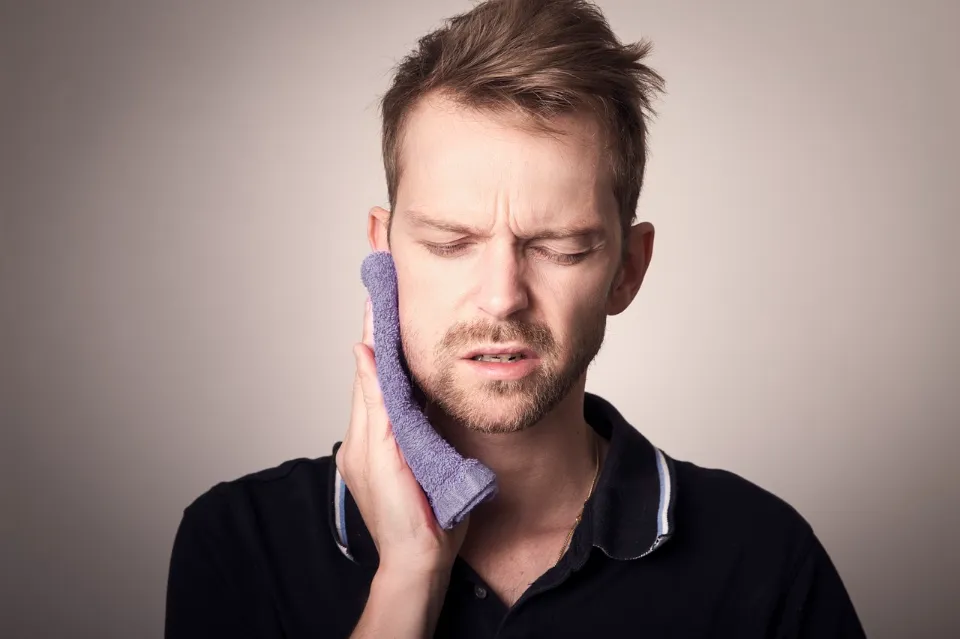
Why Am I Throwing up after a Wisdom Teeth Removal?
When compared to routine Wisdom Teeth Removal for an erupted tooth, removing impacted wisdom teeth is a little more complicated. After surgery, it’s crucial to take care of yourself. After having your wisdom teeth removed, nausea and throwing up are common. Patients occasionally report feeling queasy after anesthesia.
What to Expect After My Wisdom Tooth Removal?
Bleeding and Swelling

When having their wisdom teeth removed, many people wonder why they feel queasy and are unsure of what to expect. It’s very common to experience some bleeding or oozing after surgery. It is advised that you gently rinse or wipe the blood away. In order to stop the bleeding, you can use the provided gauze pads. There may also be some swelling in the cheeks or the region where the teeth were extracted. Swelling can be reduced with ice, and it should go away after a few days.
Read More: What to Do Before Wisdom Teeth Removal
Pain and Diet
After having your wisdom teeth removed, you might feel some discomfort. After surgery, patients might receive a prescription for painkillers or antibiotics, or we might suggest over-the-counter analgesics. After a few days, the pain should go away, but if you continue to experience any discomfort, we advise calling our office right away.
After wisdom tooth removal, it is advised to eat soft foods while your mouth heals. During their recovery, patients should refrain from sucking on anything, including straws. A balanced diet and continued hydration are advised for patients.
Read More: How to Sleep After Wisdom Teeth Removal
Nausea and Throwing up

After having your wisdom teeth removed, nausea and Throwing up are common. Patients occasionally experience nausea after anesthesia. Coke or ginger ale can help the nausea you’re experiencing go away. Normally, nausea should disappear within 4-6 hours. Calling our office is advised if your nausea does not go away. Patients may experience nausea for two to four days following surgery in some cases. Dehydration may also be a factor in this. This is brought on by painkillers.
What Are Other Complications?
Most patients bounce back quickly, but if you develop a fever or feel lightheaded, we urge you to get in touch with our office right away. A sore throat or post-procedure stiffness are potential side effects for patients. This should also fade, but if these symptoms persist, we advise getting in touch with our office.
After surgery, it’s crucial to look after your teeth. After having their wisdom teeth removed, patients should continue to gently brush and floss.

Final Words
To aid in the healing process, sutures may be applied to the surgical site. In general, the sutures should come out naturally 4 to 7 days after surgery, though occasionally they do so sooner.
No need to be alarmed about this. Simply take out and discard the suture from your mouth. If necessary, sutures can be removed without the use of any needles or anesthesia. There is no discomfort involved with this process, and it only takes a minute or so. Therefore, there is really no need for concern.
Each day following surgery, the pain should get better and better. Call our office for instructions if your post-operative pain worsens or if you experience any unusual symptoms.
Following surgery, surgical swelling typically gets worse for up to three days before fading away gradually over the following few days.
Where the tooth was taken out, there will be a hole or flaw. Over the course of 6 to 8 weeks, new tissue will slowly fill the cavity. Maintaining cleanliness in the interim is important, especially after meals when using mouthwash or salt water rinses.
FAQs
Why Am I Puking After Wisdom Teeth Removal?
After having oral surgery, nausea and Throwing up could happen. This could be the result of ingested blood, painkillers, or anesthesia. By not swallowing blood drool and refraining from taking painkillers on an empty stomach, nausea may be prevented.
Does Throwing up Cause Dry Socket?
Smoking (or using a pipe or vape) or chewing tobacco can cause a dry socket by dislodging a healing clot. A blood clot can be dislodged by violent mouth motions such as violent spitting, frequent sneezing or coughing, or Throwing up.
Can Wisdom Teeth Cause Nausea and Throwing up?
Furthermore, a wisdom tooth infection may cause you to experience fever, chills, nausea, or headache pain.





Average Rating